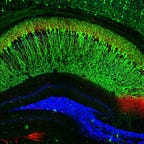The Post-Autonomous Car Economy
The autonomous driving revolution has arrived. Just last week in Singapore, self-driving car startup nuTonomy began a public trial of its autonomous taxis and Uber has announced that it will begin doing the same in Pittsburgh in the coming weeks. While both trials will have human drivers inside the cars as a precaution, this is an important step in the commercialization of autonomous vehicles.
The taxi and public transportation industries are about to be changed forever. That is quite obvious. However, there are quite a few tangential parts of the economy which may see reworkings due to the advent of self-driving cars. In this piece, I hope to present a few of them.
AUTO-INSURANCE
On average, 1 person dies in an auto-related accident for every 100 million miles driven. However, for Tesla’s autopilot feature, this stat appears to lower to about 1 death every 130 million miles. As research continues and data availability increases, autonomous cars will become safer. So, as the probability of a car crashing decreases, the cost of auto insurance (should) decrease too. But what happens when the probability of crashing becomes infinitesimal?
A recent study sponsored by KPMG theorizes that the auto insurance industry may shrink by up to 60% in the next 25 years. Considering the auto insurance industry has estimated revenue of $228 billion/year and about 225,000 employees, a decrease of this magnitude would lead to massive changes (and, unfortunately, unemployment).
MUNICIPAL FUNDING
Traffic tickets are a major source of income in various cities across the US. In Washington D.C. alone, red-light and speeding cameras led to a total of $88 million in revenue in 2013. After the riots in Ferguson, MO in 2014, the city was behind on their expected revenue. The finance director said that an increase in public safety ticketing would make up for the difference. Municipalities are quite dependent upon revenue from traffic tickets.
Unlike a human, self-driving car are systematic — they’re programmed to follow the rules, such as speed limits. And, as noted in the previous section, their ability to drive safely and avoid accidents is already better than humans’ and improving.
If full-scale adoption of self-driving cars takes place and potential ticket scenarios decrease, one must wonder how much highway patrols and police forces in general will shrink to make up for the lost revenue. The California Highway Patrol alone employs over 10,000 individuals. How many of these jobs will still exist as autonomous cars take over?
SHIPPING
In my previous article on the autonomous driving industry, I took a look at Otto, the startup hoping to revolutionize the commercial trucking industry with self-driving technology, which has since been acquired by Uber. Between a shortage of truck drivers and the importance of trucking (about 70% of all cargo in the US is moved by truck), Otto is working within a market with massive potential. In 2015, annual US trucking revenue went over $700 billion for the first time, further sweetening Otto’s prospects.
However, once autonomous trucks take over completely, 848,000 truck drivers will be out of a job.
MISCELLANEOUS
There are a few other industries which are going to be affected by this revolution which are too niche to deserve their own category.
Essentially any driving jobs — valet parking (my car can go park itself, why pay someone to do it?), food delivery (why pay the pizza boy when it can be automated?), limo drivers, and possibly in the further future, mail/package delivery (though this may be due more to drones).
The transportation industry — when traveling by car becomes more of a luxury than a hassle due to automation and if a sharing-based model takes over, there may be less of an incentive to take buses, trains, and even airplanes. The definition of “driving” changes when the user can eat, sleep, and be comfortable.
Car washes/Mechanics — if we move towards a sharing-economy model for autonomous cars, the Ubers of the world will just create their own service centers that the cars can autonomously go to as needed.
Lights/Traffic Signs — on the small chance that 100% adoption of self-driving cars occurs, the infrastructure system will evolve as well. In this perfect IoT scenario, why even have traffic lights and signs?
Final Words
Look back to how the world changed as cars initially became ubiquitous. New markets and economic trends completely changed the world. Horses and their related markets disappeared as completely new markets, such as gas stations, mechanics, and fast food, emerged. This large-scale shift in business is about to occur again.
Large scale adoption of autonomous car technology will lead to various industries being changed forever. Jobs like trucking will be replaced by jobs working on the new IoT infrastructure. Most likely though, many of these changes will lead to the destruction of more jobs than they create. But this is not necessarily a bad thing. I’m a huge fan of automation and believe it will lead to quicker adoption of universal income in the US (of which I am a proponent).
If you are interested in how autonomous driving will change the car industry (such as the fact that it could lead to a 90% decrease in the number of cars needed in general), check out the Economist’s recent cover story on Uber and the autonomous revolution.
If you have any comments/opinions about this piece, autonomous cars, or tech in general, shoot me a message on Twitter at @schembor. I’m always open to differing opinions and good discussion.
Hacker Noon is how hackers start their afternoons. We’re a part of the @AMIfamily. We are now accepting submissions and happy to discuss advertising &sponsorship opportunities.
To learn more, read our about page, like/message us on Facebook, or simply, tweet/DM @HackerNoon.
If you enjoyed this story, we recommend reading our latest tech stories and trending tech stories. Until next time, don’t take the realities of the world for granted!
